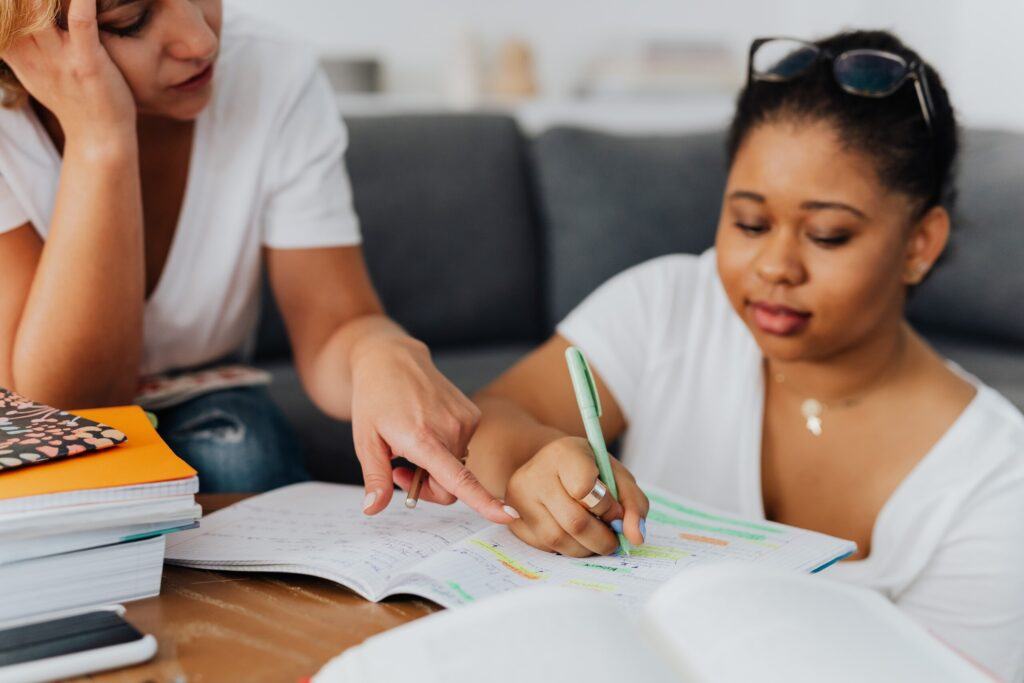Staying Safe as a Dating Teen
- Category: Relationships
- February 24, 2022
Dating as a teen can be fun, exciting, and adventurous. Whether your relationship is serious or casual, it’s essential to keep yourself safe from unhealthy, abusive relationships by learning about the warning signs. According to Headlight’s Domestic Violence Specialist Jessica Yaffa, when thinking about dating violence, “many of us think about black eyes, broken bones, and bruises; however, there is so much more that is under the umbrella of relationship abuse.”
Types of Abuse in a Teen Relationship
Many different kinds of abuse can happen in any relationship, including teen relationships. Types of abuse can include:
- Physical abuse:
Physical abuse can involve hitting, punching, shoving, pinching, yelling, throwing objects, and reckless driving.
- Sexual abuse:
Sexual abuse involves forcing someone to perform sexual acts without their consent.
- Verbal and emotional abuse:
Verbal and emotional abuse may be more subtle but is just as damaging. It can involve name-calling, demeaning, being controlling, and damaging a partner’s self-worth. This kind of abuse can also include a partner threatening to hurt or kill themselves if you leave them.
- Stalking:
Needing to continually know your whereabouts and demanding constant contact are signs of an unhealthy partner.
As a teen, you may still be learning what is healthy and what is not in a relationship. It’s normal to make mistakes, take responsibility, and change your actions as you grow within a relationship. Abusive relationships are different. Abuse is continual, unchanging despite apologies, and can escalate over time.
Less Obvious Signs of Dating Violence
Dating violence can involve any of these types of abuse, but there are still some signs that may not seem as straightforward as others. Yaffa provides a few examples of what this might look like:
- Monitoring of whereabouts and there being specific rules about where they can/can’t go
- Isolation from friends and family; partner demands that all free time be spent with one another
- Decisions surrounding appropriate dress (what is okay to wear and what is unacceptable)
- Having to check in constantly with a partner and then being accused of cheating or other “bad behavior” when unavailable
Dating violence in teen relationships is more common than you might think. According to the Centers for Disease Control and Prevention (CDC), “26% of women and 15% of men who were victims of contact sexual violence, physical violence, and/or stalking by an intimate partner in their lifetime first experienced these or other forms of violence by that partner before age 18.”
Knowledge Is Power
If you notice any of the signs discussed above happening in your relationship, you might feel things like disbelief, denial, fear, or anger. You might even notice some of these warning signs in your own behavior. Either way, understanding what is healthy behavior can help you avoid unhealthy relationships and change unwanted behaviors in yourself. Learning about teen dating violence can help keep you safe or leave abusive relationships.
Some things might make you more at risk for being in a violent or abusive teen relationship. Some of these risks include:
- Having been abused as a child
- Experiencing stressful life events or trauma
- Living in poverty
- Being exposed to violent friends or family members
- Not knowing what teen dating violence is
How to Safely Leave an Abusive Relationship as a Teen
Many resources can help you safely end an abusive relationship as a teen. You can make a safety plan on how to leave the relationship. A safety plan might include:
- Asking for help:
Reach out to a loved one, trusted adult, teacher, doctor, or friend and let them know that you are in an abusive relationship. Talk to people who you know will not speak to your abusive partner about your plans to leave.
- Plan to break up over text or call:
You might realize that breaking up in person could be dangerous if your partner won’t react well to the news. It is 100% okay to break up virtually to protect yourself.
- Protect your internet presence:
If you are experiencing stalking from an ex-partner or abuser, take steps to protect your online presence by making profiles private, not sharing your location, and blocking anyone that makes you feel unsafe.
- Find a therapist:
A good therapist can help validate your feelings and confirm that you are in an abusive relationship. They can help you set boundaries, make a firm decision to leave, and work to avoid abusive relationships in the future.
Leaving an abusive relationship can be scary. You can find the strength to end an abusive relationship by realizing you deserve healthy, safe love.
Whether your relationship is casual or serious, you can experience dating violence as a teen. Abuse in teen relationships can include physical, emotional, sexual, or verbal abuse. Other signs of teen dating violence can be subtle but are just as damaging, such as needing to know where you are at all times or damaging your self-esteem. You deserve healthy love and respect. At Headlight, our licensed therapists can give you a safe place to explore your relationship’s dynamics without judgment or punishment. We can help give you the support you need to leave an unhealthy relationship and the tools you need to find peace and healing. Whether you are a parent, friend, professional, or teen desiring a place to gain support regarding unhealthy relationship dynamics, navigating difficult conversations, or ways to support someone you care for, Headlight is here to come alongside you. Call Headlight at 800-930-0803 to learn more today.



